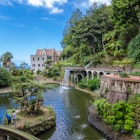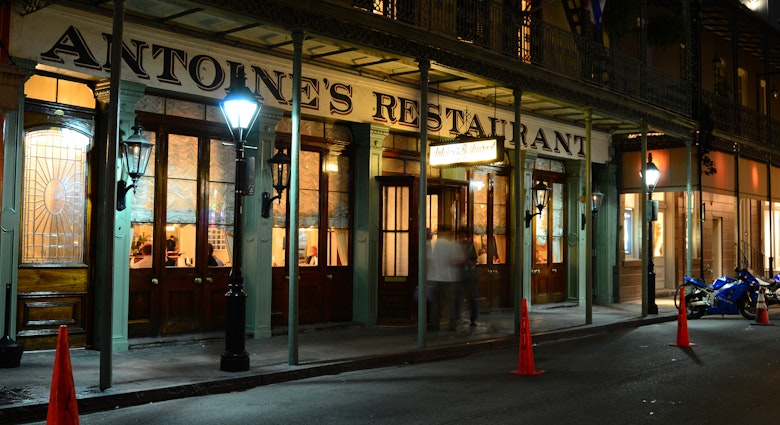
Dec 23, 2024 тЂ 8 min read

Apr 12, 2019 тЂ 5 min read

Ayam buah keluak (chicken stewed with earthy nuts) is a classic Peranakan dishТ ТЉ PixHound / Shutterstock
A unique blend of Chinese ingredients and Malay cooking styles, often with Indonesian and Indian elements, Peranakan food is Singaporeтs oldest т and arguably most delicious т cuisine. Often affectionately referred to as Nonya cuisine (after an old Malay term of respect for women), this tangy and spicy food is a wonderful example of Singaporeтs culinary diversity; add it to your list of foods to try while exploring the island.
Peranakans, or Straits-born Chinese, are a hybrid culture descended from Chinese men who married local women in the Straits Settlements including Penang, Melaka and Singapore. Often referred to as тlocal-bornт, Peranakan people represent a fascinating element of Singaporeтs rich, cultural fabric.

Peranakan dishes are commonly flavoured with shallots, galangal, chillies, peanuts, preserved soya beans and belacan (fermented prawn paste), with coconut milk commonly used in sauces. Classic dishes include otak-otak (a blend of fish, coconut milk, chilli paste, galangal and herbs wrapped and grilled in a banana leaf) and ayam buah keluak (chicken stewed with dark, earthy nuts imported from Indonesia to produce a rich sauce). But perhaps the best known is the humble laksa, a spicy coconut noodle soup cooked with either chicken, prawns or fish.
Hungry? Head to one of these Singapore establishments to try some of the Peranakan favourites.

Housed in the impressive National Gallery Singapore, this colonial-styled restaurant is sublime. From the attentive wait staff, for whom nothing is too much trouble, to the well-priced т for Singapore т menu filled with traditional Peranakan dishes, some with a modern twist, itтs a dining experience worth booking for. Must-try dishes from Singaporeтs original celebrity chef include melt-in-your-mouth daging chabek (slow-braised beef cheek cooked in a spicy tamarind, palm sugar and coconut gravy), spicy udang goreng (prawns tossed in chilli and ground spice paste) and signature dry laksa (rice noodles infused with coconut curry and served with prawns and bean sprouts). Pop up to level six after your meal to take in one of the best views of the Singapore skyline. Youтll also find branches at Clarke Quay and ION Orchard Mall.
A little off the beaten track (itтs best to take a taxi), PeraMakan serves up authentic home-style Nonya fare. Classics to order include fish-head curry (red-snapper head cooked in Nonya curry; the cheeks offer the best meat, however, many locals favour the bulging eyes), beef rendang (shin beef braised in spicy coconut sauce till tender) and ayam buah keluak. Complete your meal with a serving of chendol (shaved ice with green-jelly rice flour noodles, kidney beans, palm-sugar syrup and coconut milk); for extra local flavour, order the durian version. This restaurant is a firm favourite with Singaporeans craving traditional flavours; itтs worth the trip.

Located in a gorgeous red-and-white shophouse, Blue Ginger is a stalwart on the Peranakan culinary scene and is constantly buzzing with customers tucking into old-school favourites. Start your food odyssey with a serving of homemade otak-otak and kueh pie ti (flour cups filled with bamboo shoots, turnips and prawn), before heading to the main event. Make sure to try ayam panggang (chicken flavoured with coconut milk and spices, then grilled), Nonya fish-head curry (red snapper, okra and eggplant in home-style curry) and juhu kangkong (stir-fried water spinach with dried cuttlefish and sambal). The ground floor is quite casual; the upper levels are fancier, so if itтs a special dinner, ask to sit upstairs. Reservations are highly recommended, especially for dinner.
Singaporeтs oldest Peranakan restaurant, and reportedly a favourite of late former Prime Minister Lee Kuan Yew, Guan Hoe Soon has been serving top-notch Nonya food since 1953. The cooking awards hanging from the walls glitz up the humble decor, and there are quite a few displayed. You wonтt go wrong ordering any of the classics here: from otak-otak and fish-head curry to ayam buah keluak, everything is spot on. For something a little different, go for Nonya chap chye (mixed-vegetable stew) and ngoh hiang (five-spice pork rolls in beancurd skin).

Helmed by acclaimed Singaporean chef Malcolm Lee, Candlenut is the worldтs first Michelin-starred Peranakan restaurant. Housed in one-time British Army barracks at leafy Dempsey Hill, this light-filled restaurant serves traditional favourites with an elevated contemporary twist. Choose from the У la carte menu or put your faith in the chef and indulge in the family-style tasting feast. Highlight dishes include the delicious Wagyu beef rib rendang and Kurobuta pork-neck satay. Also try the made-in-house ice cream from the dessert menu т itтs divine.
Tucked away in the basement of the Golden Mile Food Centre, this hawker stall is a wallet-friendly Peranakan gem. Charlie, whoтs honed his Straits Chinese cooking skills over decades, recently put his cooking apron back on after an eight-year hiatus. Singaporeans rejoiced and quickly flocked to his humble stall for a taste of their old-school favourites т just like their Nonya used to make. The menu changes daily depending on what seasonal produce is available, but if theyтre on the menu, donтt miss ayam buah keluak and assam (tangy tamarind-based sauce) fish. Charlie or his wife Amy are only too happy to give you recommendations if youтre unsure what to order.

For some high-brow Peranakan delights, take a seat in one of the stunning egg-shaped seating nests at the lobby lounge of the Pan Pacific Hotel for a spot of afternoon tea. Offering an тEast to Westт menu, guests can choose either the traditional English version or opt for the sensational local Peranakan spread, beautifully presented in a tiffin box. Sample savoury delights like Nonya chicken curry, popiah (fresh spring roll) and kueh pie ti, but make sure to save room for the brightly coloured kuehs (colourful rice cakes often flavoured with coconut and palm sugar).
Located in Peranakan heartland Joo Chiat (Katong), this shophouse restaurant has been a staple on the Nonya food trail since 1945. Specialising in authentic changs (glutinous rice dumplings) and rainbow-coloured sweet treats, the shop is often overrun with customers clamouring to get their hands on traditional kuehs, pineapple tarts and onde-onde (glutinous rice balls with palm sugar). Donтt forget to purchase some for later; youтll be glad you did.
Make the most of your travel with sightseeing tours and activities from our trusted partners.
https://shop.lonelyplanet.com/categories/singapore


Dec 23, 2024 тЂ 8 min read






Dec 21, 2024 тЂ 3 min read

